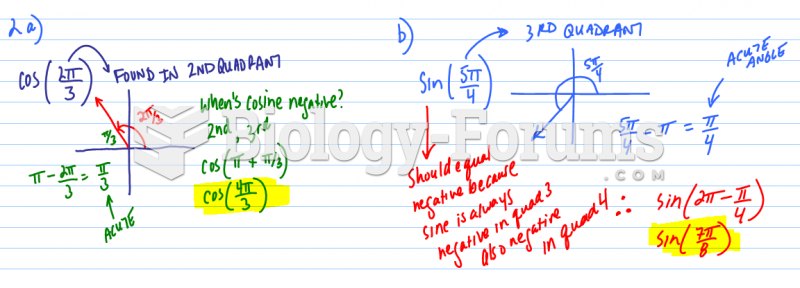|
|
|
The U.S. Preventive Services Task Force recommends that all women age 65 years of age or older should be screened with bone densitometry.
According to research, pregnant women tend to eat more if carrying a baby boy. Male fetuses may secrete a chemical that stimulates their mothers to step up her energy intake.
The longest a person has survived after a heart transplant is 24 years.
Tobacco depletes the body of vitamins A, C, and E, which can result in any of the following: dry hair, dry skin, dry eyes, poor growth, night blindness, abscesses, insomnia, fatigue, reproductive system problems, sinusitis, pneumonia, frequent respiratory problems, skin disorders, weight loss, rickets, osteomalacia, nervousness, muscle spasms, leg cramps, extremity numbness, bone malformations, decayed teeth, difficulty in walking, irritability, restlessness, profuse sweating, increased uric acid (gout), joint damage, damaged red blood cells, destruction of nerves, infertility, miscarriage, and many types of cancer.
Fungal nail infections account for up to 30% of all skin infections. They affect 5% of the general population—mostly people over the age of 70.
 Joseph Moore and His Family (1839), by Erastus Salisbury Field, reflects the emerging middle-class f
Joseph Moore and His Family (1839), by Erastus Salisbury Field, reflects the emerging middle-class f
 Using a gauge that measures vacuum in units of inches of water to test the vacuum at the dipstick ...
Using a gauge that measures vacuum in units of inches of water to test the vacuum at the dipstick ...





